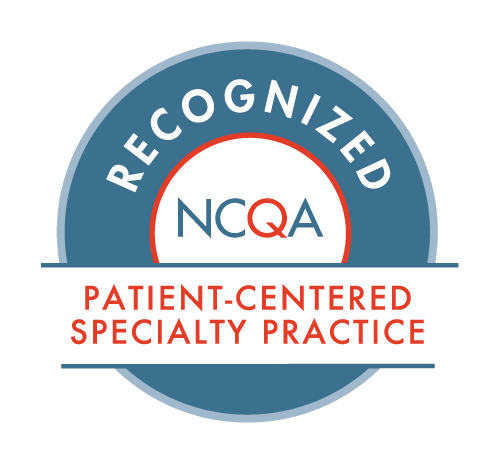Valvular Heart Disease and Risk: Lifestyle Changes That Help
- Posted on: Aug 7 2024
Heart disease is a broad term that encompasses many different conditions. One specific group of heart diseases is known as “valvular disease.” Here’s what you need to know about valvular heart disease, as well as how certain lifestyle habits can reduce your chances of ever developing this condition.
What is Valvular Heart Disease?
Valvular heart disease is a term used to describe various conditions affecting the heart valves, which play a crucial role in maintaining the proper flow of blood through the heart. These valves, which include the aortic, mitral, tricuspid, and pulmonary valves, ensure that blood flows in the right direction at the right time. When these valves are compromised, it can lead to significant health issues. Understanding valvular heart disease, its causes, symptoms, and treatments can be crucial for maintaining heart health.
Common Types of Valvular Heart Disease
- Aortic Stenosis: This occurs when the aortic valve, which controls blood flow from the heart to the aorta and onward to the rest of the body, becomes narrowed. This narrowing forces the heart to work harder to pump blood through the valve.
- Mitral Regurgitation: Also known as mitral insufficiency, this condition occurs when the mitral valve, which regulates blood flow between the left atrium and left ventricle, does not close properly. This causes blood to leak backward into the left atrium.
- Mitral Stenosis: In this condition, the mitral valve becomes narrowed, restricting blood flow from the left atrium to the left ventricle. This can lead to increased pressure in the lungs and heart failure.
- Aortic Regurgitation: This occurs when the aortic valve does not close tightly, allowing blood to flow backward into the left ventricle instead of moving out to the body.
- Tricuspid Regurgitation: The tricuspid valve, which controls blood flow from the right atrium to the right ventricle, becomes leaky, allowing blood to flow backward into the right atrium.
- Pulmonary Stenosis: This is a narrowing of the pulmonary valve, which controls blood flow from the right ventricle to the pulmonary arteries.
Causes of Valvular Heart Disease
Valvular heart disease can be congenital or acquired. Here are some common causes:
- Congenital Defects: Some people are born with heart valves that do not function properly. For example, aortic stenosis can be present from birth.
- Age-Related Changes: As people age, their heart valves may become calcified or stiffen, leading to stenosis.
- Rheumatic Fever: This complication of untreated streptococcal throat infections can damage heart valves.
- Infective Endocarditis: An infection of the inner lining of the heart can damage valves.
- Degenerative Diseases: Conditions like Marfan syndrome or Ehlers-Danlos syndrome can affect the structure of heart valves.
- Heart Attack or Heart Disease: These conditions can also lead to valvular problems.
Symptoms of Valvular Heart Disease
Symptoms can vary depending on the type and severity of the valve issue. Common symptoms include:
- Shortness of Breath: Particularly with exertion or when lying flat.
- Fatigue: Feeling unusually tired or weak.
- Chest Pain: Discomfort or pain in the chest, often associated with exertion.
- Palpitations: Feeling rapid or irregular heartbeats.
- Swelling: In the legs, ankles, or abdomen.
- Dizziness or Fainting: Especially with activity.
Diagnosis
Diagnosing valvular heart disease typically involves a combination of the following:
- Physical Examination: Your doctor may listen for abnormal heart sounds using a stethoscope.
- Echocardiogram: An ultrasound of the heart to visualize the valves and assess their function.
- Electrocardiogram (ECG): Records the electrical activity of the heart to identify irregularities.
- Chest X-ray: Provides images of the heart and lungs to identify any structural changes.
- Cardiac MRI or CT Scan: Offers detailed images of the heart valves and surrounding structures.
Treatment Options
Treatment for valvular heart disease depends on the severity of the condition and the specific valves affected. Options may include:
- Medications: To manage symptoms and reduce the risk of complications. Common medications include diuretics, blood thinners, and medications to control blood pressure or heart rate.
- Lifestyle Changes: Adopting a heart-healthy lifestyle, including a balanced diet, regular exercise, and avoiding smoking, can help manage symptoms and improve overall heart health.
- Surgical Intervention: In more severe cases, surgery may be necessary. This can involve:
Valve Repair: Surgical techniques to correct the valve without replacing it.
Valve Replacement: Replacing a damaged valve with a mechanical or biological prosthetic valve.
- Minimally Invasive Procedures: For some conditions, newer techniques like transcatheter valve replacement or repair can be an option.
Living with Valvular Heart Disease
Managing valvular heart disease often involves regular follow-up with a healthcare provider, adherence to prescribed treatments, and monitoring for any changes in symptoms. Engaging in a heart-healthy lifestyle can also play a significant role in managing the disease and maintaining overall health.
Conclusion
Valvular heart disease is a serious condition that requires careful attention and management. Understanding the different types, causes, symptoms, and treatment options is essential for those affected and their loved ones. If you suspect you have valvular heart disease or have been diagnosed, working closely with your healthcare provider to create a tailored treatment plan can help ensure the best possible outcomes and improve your quality of life.
Contact HCA’s Valve Center
Hunterdon Cardiovascular Associates is committed to providing the highest quality of care in a patient-centered environment. Our offices are conveniently located in Flemington, Clinton, and Bridgewater. We have subspecialty treatment centers available, including the Center for Structural Heart Care, which is led by Dr. Venkatesh Alapati. Our specialty medical centers ensure our patients receive the proper care for their condition. To make an appointment, please contact us today.
Posted in: Uncategorized



